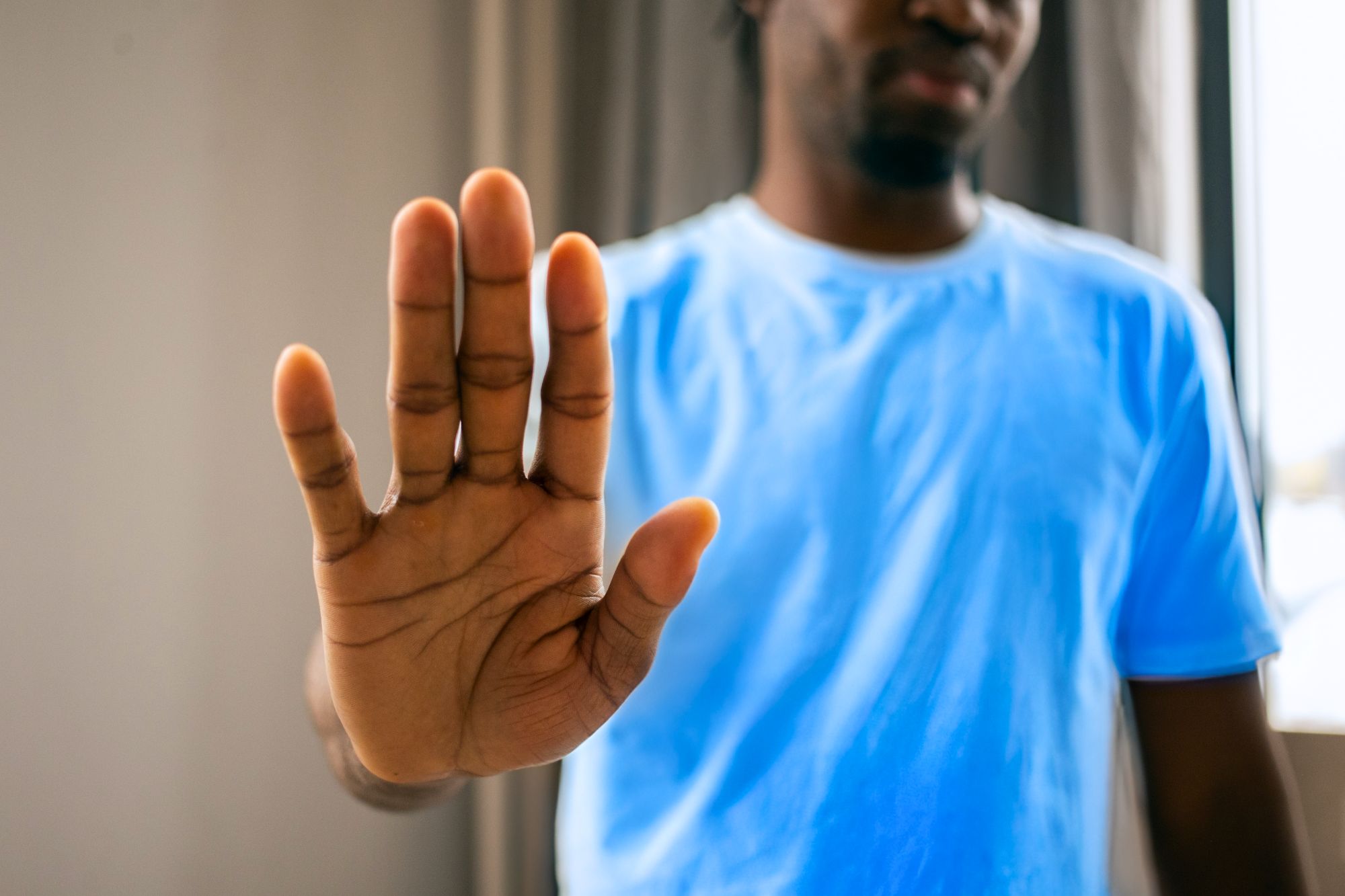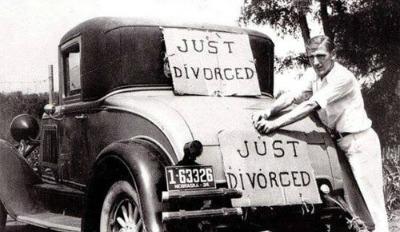Archive for September 2016
Divorcing? 9 Tips For Dealing With Grief
To get over your divorce, you’ve got to grieve.
Grief and grieving are typically associated with death. But there are lots of other losses that can also trigger grief.
According to The University of Texas at Austin’s Counseling and Mental Health Center, some of the other losses that can trigger grief are the loss of a friendship, serious illness of a loved one, leaving your home, change of job, loss of a physical ability, loss of financial security and relationship breakup.
Getting divorced will trigger grief. It’s normal to feel a lot of pain about the end of your marriage and all the other losses that are part of your divorce.
Yet feeling miserable isn’t where you want to stay. You want to move on with your life and you know that there are stages to grief. Yet you just can’t seem to stop crying.
Dealing with grief is complicated – especially when you’re grieving divorce because there aren’t social norms for you (or your family and friends) to follow to help you get through your divorce grief.
So if you’re ready to begin dealing with your grief so you can move on with your life, you’re going to have to take matters into your own hands. Now it’s not quite as difficult as it sounds if you just follow these 9 tips:
- Face your feelings. As uncomfortable and unfamiliar as they are facing your feelings is the only way to get through them. You can’t ignore your grief or stuff it down for long because it will erupt with more power and pain than you’re experiencing right now. Although, that doesn’t mean you have to face everything at once or all by yourself.
- Lean on your friends and family for support. Your friends and family love you and want to support you through this major life transition you’re facing, but they don’t really know how. You’re going to have to get specific with them about what you need – to talk, to receive a hug, to cook you and your kids a meal. Ask for what you need and you’ll be surprised at how much love you’ll receive. However, your friends and family can’t be your only support system.
- Join a divorce support group. The people who are in these groups know EXACTLY what dealing with grief about divorce is like because they’re on the same journey. Interacting with others who get what you’re going through is so incredibly comforting because you’ll quickly realize you’re not quite alone as you feel.
- Work with a helping professional. Talking with a therapist, clergy member or divorce coach who’s been through divorce themselves is tremendously valuable. Not only will they give you a different perspective or two for what you’re experiencing, but they’ll also give you specific tools that have worked for them and for others they’ve helped along their divorce journeys.
- Find comfort in your faith. Knowing that there’s a bigger picture and hope for your future is extremely comforting. The hope and comfort will provide you with the encouragement you need to get through dealing with your grief.
- Express your grief in a creative or tangible way. You might want to journal, write a eulogy for your marriage, exercise, beat a pillow while you sob, or even paint a picture of your grief. Dealing with grief is a personal and therefore unique experience. Do what you feel drawn to do to express your grief in as many positive ways as possible. By doing so, you’ll be dealing with your grief about the end of your marriage in as complete a way as possible.
- Take care of yourself. Grief messes with you in all kinds of ways including your eating and sleeping. Take care of your body – eat, sleep, drink plenty of water and get some exercise. In fact, despite mental health and physical health being thought of as distinctly separate things, the truth is that they are highly connected. So, to prevent your grief from lingering or becoming worse, take good care of your physical self as you’re dealing with your grief.
- Don’t abuse drugs, alcohol, sex, food or anything else as a substitute for dealing with grief. All any of these behaviors do is diminish your capacity to face your feelings and dealing with your grief. And that will just make the pain last longer despite the respite you have in the moments you’re dulling your pain with your behavior(s) of choice.
- Don’t make major decisions on your own. This might seem impossible as you’re needing to make all kinds of major decisions as a result of your divorce, but get sage advice before sealing the deal. Work with an attorney you trust. Talk about the options with your friends, family and helping professional. When you have the valuable input you need, you’ll be able to make more sound decisions despite the fact that you’re still dealing with grief.
These 9 tips aren’t a magic wand you can use to suddenly stop having to deal with your grief. However, these tips will help you move through your grief as completely as possible so you won’t get stuck along your way healing from your divorce.
I’m Dr. Karen Finn, a divorce coach and advisor helping people just like you who are divorcing and dealing with grief. You can join my newsletter list for free weekly advice. And if you’re interested in taking the first step toward working with me, you can schedule an introductory private coaching session.
Looking for more help with getting over the end of your marriage? You’ll find what you’re looking for in Dealing With Grief.
How To Answer The Question ‘Is My Marriage Over?’
You can confidently and without regret answer this question for yourself.
One of the most difficult questions you’ll ever ask yourself is “Is my marriage over?” It’s rarely a simple yes or no that you can confidently offer as a response. (There are some circumstances when you should immediately choose to divorce, but, thankfully, people dealing with those situations usually already know they need to end their marriage.)
You’ll struggle with this question for several reasons.
“Is my marriage over?” is a highly emotionally charged question. Your emotions ping pong between upset, sadness, fear, worry, nostalgia and a whole host of others as you struggle to figure out your answer. And when your emotions are so strongly engaged it’s almost impossible to think clearly.
The stakes are high when you begin asking this question. You’re facing a fork in the road. Either you stay or you go. There’s no in-between.
Although you’re asking yourself ‘Is my marriage over?’, the truth is that your answer will impact many more people than just you. Obviously, your spouse and kids (and pets) will be deeply affected by what you choose. But so will your family, your spouse’s family, and your friends. It’s a whole lot of people to consider.
With all this going on, you’re also stressing about making the right decision. And that, unfortunately, is unlikely to happen with all these thoughts and emotions swirling around!
So let’s look at your question ‘Is my marriage over?’ from a little bit different perspective.
But before we do that you need to calm your mind and body down just a bit; so take a deep breath or as many as it takes for you to relax just a bit.
Now, the truth of the matter is you actually have 3 options here instead of just the 2 you’ve been worrying about.
Your first option is to stay where you are in all the uncertainty and stress. If you’re OK with the status quo and living your life like this, then this is what you should choose to do.
Your second option is to choose divorce. Choosing divorce might sound simple or even like you’re taking the easy road, but, trust me, there’s nothing easy about divorce. (if you’d like some ideas about what to expect when you get divorced, you’ll want to get my special report “Contemplating Divorce? Here’s What You Need To Know”)
Your third option is to choose to give your marriage everything you’ve got until the correct decision is obvious to you. This doesn’t mean that you just figure out what to do on your own. It means that you exhaust every option you can think of including talking with people who have made their marriage work for the long-haul, going to counseling or coaching together, reading books and articles on making marriage work, talking with people who have gotten divorced, and getting individual counseling or coaching.
This third option isn’t easy when you consider the effort involved, but it’s the only way you’ll know with certainty that you’re making the correct decision for you and your family. And once you know that you’ll be able to honestly answer “Is my marriage over?” and proceed with your decision without a second thought.
I’m Dr. Karen Finn, a divorce and personal life coach. I help people just like you who are contemplating divorce and want support in making the right decision for them. You can join my newsletter list for free weekly advice. And, if you’re ready, you can take the first step toward working with me as your personal coach by scheduling a private consultation.
Looking for more help with your marriage? You’ll find what you’re looking for in Unhappy Marriage.
Some Promises Are Meant To Be Broken
When you divorce, you’ll make promises to yourself that don’t make sense to keep for the long haul.
Last May my husband (he’s my second) and I (I’m his third wife) celebrated our anniversary. But it was an event that almost didn’t happen because of a promise I made to myself after I divorced.
When I got divorced in 2002, I hurt. The pain was so intense that I wasn’t sure I’d survive it.
I kept having fleeting thoughts of suicide, but I was assured that those thoughts were pretty normal. I was still worried though. What if those thoughts started to stay around longer? What would I do then? How would I stop them? I was terrified by the unfamiliarity of these self-destructive thoughts that kept popping up. Was I losing my mind?
I also wasn’t taking very good care of myself. I mean we all have trouble sleeping when we’re going through divorce, and I was doing my best to try to get better sleep. But that wasn’t eating either. Food had mostly lost its appeal.
But I was also withholding food from myself for two other reasons. First, I didn’t want to get fat. In my mind I associated being fat with being unlovable (thank you first husband for making sure I understood that was your opinion). And if I was unlovable, there wasn’t much point in living. Second, I was afraid of spending too much money on food because I was terrified that I might lose my job and not be able to pay my bills.
The other really big source of pain was that I’d gotten divorced in the first place. I had made a vow to stay married for better or worse. And I failed. It didn’t matter that my first husband and I agreed that we would both be better off if we divorced, I felt like a failure. But beyond the feelings of failure, I also was terrified that God would strike me down because I’d gotten divorced. In fact, I kinda began to expect it.
Now, I’m not saying that my fears and pain were 100% normal and sane, but I’m not saying they were indications of insanity either. They were just manifestations of my pain at having my life as I knew it vanish and being unsure of who I was anymore.
Luckily, over time and with a lot of effort, I slowly crawled out of the quick sand of misery I was stuck in. And as I started to be able to see myself and the rest of the world a bit more clearly, I latched on to the idea that the reason I went through all of that horrible pain after my divorce was because I’d gotten married in the first place. So I made myself a promise: I would NEVER marry again.
As I began creating a new and better life for myself, I started dating again – just for fun. (The first time I started dating was as soon as I was divorced, but that’s a story for another time.)
And you know, after I’d been on eHarmony for 3 months and been on lots of dates, I met Jim. We talked for more than a month before we met in person and when we did he both scared and intrigued me. He scared me because he gave me a big bear hug as soon as we met. I wasn’t expecting it because back then I didn’t know anyone who would greet a stranger like that. And he intrigued me because his conversation displayed a wonderful combination of confidence and shyness. (And, yes, I thought he was good looking too.)
Well, we hit it off pretty quickly and we both stopped seeing anyone else within a month of meeting. We also moved in together at about that same time too. (YUP! I know it was fast and I certainly don’t recommend the pace of our relationship for everyone.)
Six months after that I decided to take a job out of state. He decided to move with me. The first time he proposed was shortly after we moved. I was non-committal because I didn’t want to marry again. Remember that promise I made to myself?
A year after that, he decided to take a job out of state and he asked me to marry him again. He was really insistent that he wanted to have a ring on my finger before he left and he wanted to have a ring on his finger before he left too. I agreed to get engaged, but I thought to myself, just because I’m engaged that doesn’t mean I have to get married. I was still bound and determined to keep my promise of NEVER marrying again.
After we’d had a long-distance relationship for a year, I decided to move and live with Jim again. He suggested the move and finally getting married by saying something along the lines of “Just say ‘yes’.”
BUT in my mind I was only saying “yes” to moving in together again.
After more than a year passed, Jim finally got frustrated with me and asked “Why won’t you marry me?” I had all kinds of excuses running through my mind, but none of them really made sense. So I changed the question to “We’re living together, so why does it matter?” All he could say was that it mattered. He told me I could have any kind of wedding I wanted and then pressed me to finally set a date.
I relented – kinda. I knew exactly where I wanted to get married and I also suspected that it would be impossible to be married there for a year or more because of a waiting list. Well, I was wrong. We could get married there in just 3 months.
I was still hot and cold about the whole idea of marriage right up until the moment I said “I do”. But when I said “I do”, an amazing thing happened. I felt peaceful. I felt lighter and I felt happy.
I’ve had several years to think about it since then. And I’ve realized that I made the promise to NEVER marry again when I was still hurt. I made it when I thought that all men were the same and that I would never grow or change.
Because I was so afraid of being hurt again, I didn’t really let myself live. I had too many walls up about what was and wasn’t appropriate for me and what risks I was willing to take.
Luckily for me, Jim was willing to wait for 4 years for me.
Why do I share this story with you? Because I know the pain of divorce and I know the decisions we make when we’re under so much stress may only be the correct decision in the moment and not the correct decision for a lifetime.
I’m Dr. Karen Finn, a divorce coach and advisor helping people just like you who are struggling with creating a new life after divorce. You can join my newsletter list for free weekly advice. If you’re ready to take the first step toward working with me as your personal coach, you can schedule an introductory private coaching session.
This article originally appeared on DivorceForce.
How To Deal With The SH*T People Say When You’re Getting Divorced
You never know what people will say, but you don’t have to let their words destroy you.
You’d like to believe that people would be kind and compassionate to you when you’re getting divorced. After all it is one of the most stressful things you can go through.
And sometimes you’re lucky because people are kind and compassionate. But there are always those people who say the most awful things.
Here are just a few of the horrible comments my clients have reported they’ve been told:
“Just get over your divorce already!” a helping professional, a friend, and a family member
“I knew he was still cheating on you when you reconciled, but I didn’t want to tell you since you were trying to make it work.” a friend
“Why do you care if he’s seeing someone else? You left him.” a friend and a family member
“I don’t know why you married her in the first place. I never liked her.” a parent
“Oh my GOD! You’ll NEVER make it on your own with those kids. You never should have had them.” a friend
What’s most painful about this horrible shit that people say is who’s saying it. It’s your family. It’s your friends. And it can even be the helping professional you’ve turned to for help.
So on top of the dismantling of your marriage, all the legalities of getting divorced, needing to redefine your relationship with your ex, learning how to co-parent, helping your kids deal with the divorce, and everything else that you’ve got to do to rebuild your life after divorce, you’ve also got to deal with the betrayal of these people you thought you could turn to.
This is exactly when you start to wonder who you can still trust.
Getting divorced is one of the most difficult transitions you’ll ever experience. And yet it can also be one of the most important turning points in your life.
If you know how to deal with the BS that others throw in your direction, you’ll come out of your divorce stronger than ever. And the strength you build now will make your post-divorce life amazing.
So how do you deal with the shit? You keep a few important points in mind.
- If they’ve never been divorced, don’t expect them to have anything important to say to you about yours. Most people who have never been divorced only have TV, magazines and the movies as reference for what getting divorced is like. They have ZERO idea of how long it takes to get over a divorce or how painful it is. So don’t let them take up any of your precious emotional energy or thought with their opinions because they’re ignorant when it comes to divorce.Just as you wouldn’t ask your mechanic to help you figure out what all the red spots are on your child’s chest, don’t expect your family, friends or maybe even your therapist, clergy or other helping professional who’s never been divorced to always provide helpful opinions about your situation.
- Most people are chicken shits. They aren’t able to have the honest conversations you need right now because it would make them feel uncomfortable.
- People will project their limitations and life experience on you. We all see the world through our own eyes and very few of us can truly step into another person’s shoes to see life through their eyes. The result is that most people will ASSume (yes, I do mean this to imply that they’re making as ass of themselves) that what’s true for them is true for you too. They may be weak and uninformed, but that doesn’t mean you are. In fact, it takes an incredibly strong and determined person to get through divorce – a person just like you.
But just because you can understand why they’re saying the BS doesn’t mean you have to put up with it. You definitely shouldn’t just accept what they have to say.
One way you can turn their stupidity around is to use it to build a stronger sense of self. And the way you do that is by becoming completely aware of what you’re feeling as a result of their insensitivity.
Then name those feelings (you can either call the emotions what they are or something more creative like George, Ringo, Paul and John).
Once you know what the emotions are and can name them, you’ll be able to choose how you experience them because you’re not simply feeling them any more.
This power of choice is incredible. You might choose to continue experiencing the emotions as you have been or you might choose to experience something else entirely. And it’s by choosing your experience that you strengthen your sense of self.
You can deal with other people’s fear of being honest be being honest yourself. Tell them exactly what you think and feel. You don’t need to attack them, but by choosing to articulate exactly how what they’re saying impacts you you’ll feel much more powerful and you’ll no longer be a victim of their words.
And when people tell you that you can’t do something, you can use their negativity as fuel to prove them wrong. You know what you’re really capable of. They don’t. They may be weak, but that definitely doesn’t mean that you are.
We’re all human. We all make mistakes. We all say things we wish we could take back. The problem is that when other people are way too human when you’re getting divorced it hurts worse than it does at other times because you’re already battling a whole lot. But, by keeping these ideas in mind, you’ll emerge from the chaos and uncertainty of your divorce a much stronger and confident person because you’ll have learned beyond a shadow of a doubt that you can trust you.
I’m Dr. Karen Finn, a divorce coach and personal life helping people just like you who are struggling with divorce and are ready to move forward with their lives. You can join my newsletter list for free weekly advice. And, if you’re ready, you can take the first step toward working with me as your personal coach by scheduling a private consultation.
Looking for more support and ideas for getting through your divorce? You’ll find what you’re looking for in Healing After Divorce.
This article originally appeared at YourTango.
7 Reasons People Get Stuck While Dealing With Divorce
Once you know these reasons, you won’t stay stuck for long while dealing with your divorce.
Nobody wants to admit that they get stuck along the way in dealing with their divorce it would be like admitting to yet another shortcoming.
“My marriage failed and I can’t get over it!” Making a statement like that for many people would be tantamount to taking out an ad on Facebook saying “I’m a loser.”
But the truth is that everyone gets stuck somewhere along the way dealing with divorce.
Getting stuck at least once is normal because learning how to get over divorce isn’t a required course before getting married. Besides that, it doesn’t matter how many books you’ve read, how many times you’ve talked it over with your divorced friends, or even how many celebrity divorces you’ve followed, you’re going to get stuck. (Yes, this is true even if you’ve been divorced before because every divorce is unique.) You don’t know what it will take for you to get over your divorce until you’re done dealing with it.
However, in all my years working with people dealing with divorce and going through my own divorce I’ve found the most common reasons people get stuck.
By knowing these reasons, you’ll be better able to identify then when you start to get too mired in your misery. And when you know exactly what’s tripping you up you’ll have an easier time finding the specific help you need to continue dealing with your divorce instead of staying stuck.
- Grief. Many people get trapped in lamenting what they’ve lost. This includes the hopes and dreams of what their marriage meant to them. It also includes more tangible things like the house and the 401K. And it includes the relationships that are lost.
- Feeling Like A Victim. When you get ensnared with feeling powerless you’re about as stuck as you can get. Feeling like a victim also shows up as needing to assign blame – either to yourself or to your ex. Anytime you relinquish your power to change your life, you’re giving up and dealing with divorce becomes impossible at that point.
- Anger. Anger, fury and rage are a normal part of the divorce process. However, you can get imprisoned in these emotions because they feel so powerful and righteous. The trick to using these strong feelings to help you deal with divorce positively is being willing to look underneath them. When you do, you might discover another layer of hurt that needs healing.
- Feeling Worthless. Most people experience feelings of being unwanted and worthless when they divorce. And it makes sense to do so! After all, if the one person who said they wanted to spend the rest of their life with you is content to toss you out with the trash, then what else are you supposed to think? But the truth is that divorce does nothing to define your value.
- Fear. This is a biggie! Fear is the driving force for people staying stuck in all kinds of situations besides dealing with divorce. If you can remember that fears usually fall into one of three categories (fear of loss, fear of dealing with divorce, fear of the future), then you’ll be better able to deal with each of your fears.
- Unwillingness To Explore Love. It might sound funny, but many people who are otherwise successfully dealing with divorce get stuck in a belief that there’s no such thing as love for them or that they now have to have rules about how they will experience love. However, the failure of your marriage has ZERO to do with your ability to experience love in the future.
- Feeling All Alone. The loss of so many relationships surprises most people who are dealing with divorce. But on top of those losses comes the feeling that no one else really understands (or maybe doesn’t want to try to understand) what you’re going through. Divorce is a horribly isolating experience. And the only way to make it through without getting stuck in the loneliness is to find a support system.
These seven reasons people get stuck dealing with divorce are broad and you might not see exactly what you’re facing in this list. However, keep in mind that these are general categories of problems people face when they’re going through divorce and, if you look carefully, you’ll find a hint for the help you need to get through the specific challenge you’re facing.
And the best part is that by knowing how you’re getting stuck, you’ll be better able to move through it so you won’t stay stalled for too long. Just remember that everyone gets stuck as they’re dealing with divorce, but with this cheat sheet you will find your way through your healing much more quickly.
I’m Dr. Karen Finn, a divorce coach and personal life coach helping people just like you who want to get over their divorce. You can join my anonymous newsletter list for free weekly advice. And, if you’re ready, you can take the first step toward working with me as your personal coach by scheduling a private consultation.
Looking for more support and ideas for getting through your divorce? You’ll find what you’re looking for in Healing After Divorce.
11 Halloween Ideas For Celebrating With Your Kids Post-Divorce
Don’t let not having your kids on the 31st prevent you from celebrating Halloween with them!
Halloween marks the beginning of the holiday season. From October 31st on, the parties, shopping, anticipation and, if you’re recently divorced, dread begin.
Why dread? Because now it’s sinking in that being with your children for all the holidays is a thing of the past. You’ll be sharing your kids with their other parent. And that means you’ll be A.L.O.N.E. for at least some holidays every year.
Yup, alone for the holidays.
After you let that sink in for a moment, it’s time to get into action and start planning how you can still celebrate each of the holidays with your children even if you don’t have them on the official holiday day.
And the best place to start is at the beginning of the holiday season – Halloween.
To get you started with your planning, here are 11 Halloween ideas that you can use as is or as the jumping off point for your own amazing way to still have bunches of Halloween fun with your kids.
- Have a Halloween party for your kids. Make sure it’s a costume party. And for extra fun include a piñata and bobbing for apples.
- Have a monster meal. Dress up and eat monster food like eyeballs (peeled grapes), brains (cauliflower) and blood and guts (spaghetti with marina sauce) with your fingers.
- Take your kids trick-or-treating. Just because you don’t have your kids on October 31st, that doesn’t mean you can’t take them out to ring a few doorbells. Just enlist the help of understanding friends and family and trick-or-treat at their homes.
- Go on a hayride or to the pumpkin patch. Both of these activities ooze fall and fun.
- Have a scary movie marathon. Of course the movies will need to be age appropriate. And once you have your scary movie queue selected, pop-up some jumbo bowls of popcorn, turn out the lights, fire up Netflix, and see who screams first!
- Carve jack-o-lanterns. You can go old school or get creative.
- Create a scavenger hunt. This is great for older kids! Create clues that lead your kids all over the place and then finally to the candy.
- Have lunch with them at school on their costume day. Heck, if you have fun, you might decide to have lunch with them at other times throughout the school year too!
- Turn off all the lights and tell ghost stories by flashlight. You know what I mean. Put the flashlight under your chin so you have an eerie glow and take turns weaving your most frightening tales.
- Go to a haunted house. There are all kinds of haunted houses that pop-up around the beginning of October. Pick the biggest, scariest one that’s also age appropriate for your kids.
- Go on a ghost or haunted places tour. Most communities have haunted places or ghost tours. If yours doesn’t make up your own tour and delight your kids with fanciful tales of ghouls and unexplained events.
Going through the holidays without your kids is really tough. But if you allow yourself to use the Halloween ideas as the starting point for learning how to celebrate each of the holidays in a new way, you’ll quickly discover that you can make any time you have with your kids amazing and holiday-ish.
I’m Dr. Karen Finn, a divorce coach and advisor helping people just like you who are struggling with co-parenting. You can join my anonymous newsletter list for free weekly advice. If you’re interested in taking the first step toward working with me, you can schedule an introductory private coaching session.
Looking for more support and ideas for making your life better post-divorce? You’ll find what you’re looking for in Coparenting.
What Makes Gray Divorce Especially Difficult
Unlike divorces that happen earlier in life, it’s not the kids.
Every divorce is full of challenges, frustrations and problems. But gray divorces (those that occur when people divorce in their 50s and beyond) has a unique set of issues.
Most couples who divorce later in life are empty nesters. Their kids are out of the house and living their own lives.
You could say this simplifies a gray divorce because you don’t have to worry about child custody or child support or visitation. (But just because the kids are out of the house that doesn’t mean they won’t have difficulty with their parents’ divorce.)
But this seeming simplification for gray divorce is offset by a major complication – retirement.
When you’re over 50 and divorcing you’re at most 15-20 years from retirement. And all those retirement plans you’ve been making for the decades you’ve already been working? They dissolved along with your marriage.
It’s this decreased time to recover financially from divorce that makes gray divorces so challenging.
So what do you do? You think carefully about every decision you make.
After years of marriage, a couple’s shared assets are much greater and probably more complicated than those of couples who have shorter marriages. And the division of these assets impacts lifestyle not only immediately upon divorce, but also into retirement because of the relatively short timeline before retirement.
For example, when younger couples divorce, their marital home is usually their largest joint asset and can fairly easily be dealt with during the divorce. What often happens is that one spouse will buy the other out by refinancing the mortgage or even taking out a second mortgage.
But when a couple who’s closer to retirement decides what to do with the marital home the option to buy out the spouse is less likely because the long-term earning potential necessary to carry a second note on the home just isn’t there. As a result, the house is typically sold and both former spouses downsize – and downsize a whole lot more than their original retirement plan called for.
In the US another major challenge for gray divorcees (especially for those who have been a stay-at-home parent) is healthcare coverage until they qualify for Medicare. Many choose to use COBRA so they can continue the same healthcare coverage they’re used to, but the rates are often quite high which takes a chunk out of any spousal support they may be receiving.
And paying spousal support many years into the future, especially when those years occur after retirement, can be very difficult for the primary breadwinner.
Finally, many people who divorce after 50 worry about being alone for the rest of their lives. This makes recovering from divorce that much more difficult because these people begin to wonder what there is to look forward to. The end result is that they lose hope more easily than those who divorce when they’re younger and are at higher risk for getting stuck in their divorce recover efforts.
However, even with the extra challenges of gray divorce, more and more people 50 and older are divorcing. Some are divorcing because they’ve stuck it out for the kids and are ready to begin living their lives for themselves again. Others are ending their marriages simply because they don’t want to continue living their lives as they have been.
Regardless of what triggers a gray divorce and the challenges a divorce at this time of life brings with it, the truth of the matter is that divorce is a life transition and your life after divorce will be what you make of it – just like every other life transition you’ve already experienced.
Looking for more tips on how to deal with your gray divorce and move on with your life? You’ll find what you’re looking for in Life After Divorce.
I’m Dr. Karen Finn, a divorce coach and advisor helping people just like you who are wondering how to make their life work during and after divorce. You can join my newsletter list for free weekly advice. If you’re ready to take the first step toward working with me as your personal coach, you can schedule an introductory private coaching session.
This article was originally published at DivorceForce.com.
Stop Blaming Your Ex And You’ll Start Getting Over Your Divorce
The longer you blame them, the more you’re hurting yourself.
There are tons of reasons why people blame their ex for their divorce. Among the more common reasons are giving up, unwilling to work on saving the marriage, too argumentative, and unrealistic expectations.
And these are wholly justifiable reasons for feeling angry and hurt about your ex taking your dreams of celebrating your 50th anniversary together and grinding them to dust without an ounce of remorse.
However, if you continue to focus on blaming your ex you’re only hurting yourself (and your kids).
Getting over divorce requires a lot of things including that you get over blaming your ex.
By continuing to blame your ex for the end of your marriage, you’re making your divorce more contentious. The increased friction has three main effects. First, all the arguing makes coming to a settlement take a whole lot longer. Second, you’ll wind up paying more for your divorce. Finally, getting over divorce is pretty difficult if your divorce is still going on.
All the blame you’re heaping on your ex-spouse for breaking up your family negatively impacts your kids. Sure, breaking the family up in the first place hurts your children, but by continuing to find fault with their other parent isn’t making things any better.
In fact, it’s keeping you from figuring out how to co-parent well. And the longer it takes the two of you to figure out the whole co-parenting thing the more damage you’re both doing to your kids.
It takes a lot of energy to continue blaming your ex for shattering your dreams of happily ever after. You could say that it’s providing you the fuel to get through the divorce. But that wouldn’t be true.
The truth is that the longer you continue placing all the blame for the end of your marriage squarely on their shoulders, the longer you’re allowing them to hold you as an emotional hostage. You’re abdicating responsibility for yourself and making it impossible to get over your divorce.
In order to get over your divorce you have to do x things. You have to accept what’s happened and that your marriage has ended. You have to acknowledge the torrent of emotions you’re experiencing. And you have to take responsibility for you and work on getting over your divorce.
No one can do any of this for you – no matter how much you blame them; the blame will never make you feel better or allow you to create a new chapter of your life.
The longer you choose to focus on the blame the more you’re focusing on the past and it’s damn hard to move forward when you’re looking backward. You have to focus on what you can do to move yourself forward (as scary as that is).
And that’s the secret of getting over divorce: focus on what you can do now to truly change your situation for the better regardless of what your ex did or didn’t do.
I’m Dr. Karen Finn, a divorce coach and advisor helping people just like you who are struggling with getting over divorce. You can join my newsletter list for free weekly advice. And if you’re interested in taking the first step toward working with me, you can schedule an introductory private coaching session.
Looking for more support and ideas for getting over divorce? You’ll find what you’re looking for in Dealing With Grief.
A Little Emotional Detachment Could Save Your Unhappy Marriage
Use a little emotional detachment to prevent fights with your honey from destroying you.
We’ve all had them – those epic battles with our spouse that leave us shattered and questioning why we’re still with them.
As much as you dreamed of your marriage being different (and maybe even better) than those marriages you observed growing up, the reality now is that your marriage is pretty much the same as those other ones. The rosy glow of new love has worn off and you’ve discovered that your road to “happily ever after” has a few pot holes in it.
Yeah, pot holes are a euphemism for those epic battles that seem to be part and parcel of your marriage.
Fights between a married couple are so horrible at times for four big reasons.
- Spouses know each other better than anyone else. Remember when you first fell in love and would spend hours talking? Well, that’s how you first got to know each other so well. Then as you spent more and more time together you learned more and more about each other.This deep familiarity between the two of you makes every argument more hurtful because of the underlying assumption of trust to care for each other above everything else.
- Spouses trust each other with just about everything. This trust which permeates your entire relationship gets thrown into question each and every time you have a fierce argument. You begin to wonder not only if you can really trust them, but if you can continue to trust yourself for picking them to be your spouse in the first place.
- Spouses live together. Unless you’ve got a long-distance marriage you’re with each other a lot. There’s no running off back to your place to cool down after a fight because you live together. You share a home and probably a bedroom.This closeness works well when things are going well, but when things go poorly this togetherness can make it extremely difficult to recover from a battle.
- And spouses tend to trigger each other’s sensitivities. You have wounds from the past – just like everybody else does. Sometimes events in the present can trigger hurt from the past.Once your spouse triggers your past hurt, it’s present right now demanding that you deal with it. (If you have a tendency to feel abandoned, alienated, dependent, emasculated, empty, enmeshed, helpless, inferior, insignificant, patronized, powerless, rejected, subordinate, used, weak or worthless when you and your honey argue, then you know exactly what I’m talking about.)
The intimacy and trust you’ve developed over the years combined with the fact that you’re human can make it really hard to separate yourself from your spouse. When things are going good that closeness is great! But when things aren’t going so well, your battles can leave you feeling devastated.
The best thing you can do to prevent the typical aftermath of pain from your arguments is to practice a little emotional detachment.
“A little” is key here. You don’t want to detach from your spouse, you just want to add some space between you and your emotions when a battle is underway.
One of the easiest ways to add a little space is to remember that whatever your honey is saying is more about them than it is about you. And that’s true even if they’re saying (or yelling) horrible things about you.
Whenever your spouse states something it’s coming from their point of view which includes their perceptions, their assumptions, their understanding, their beliefs, and their emotions. It’s all about them. You might believe they’re completely wrong, but remember that’s from your point of view (which, by the way, does include all of your perceptions, assumptions, understanding, beliefs and emotions).
So instead of becoming embroiled in the battle, you can become curious about what they’re saying. Once you’ve acknowledged their statement and emotion, you can choose to ask clarifying questions in an effort to understand why your spouse is saying what they’re saying. By doing so, you’ll automatically be practicing a bit of emotional detachment.
Another simple way to separate yourself from the battle so you don’t leave it feeling destroyed is to remember that your spouse is human too – despite the transformation that usually occurs when you argue with them.
Their anger could easily be covering up one of their sensitivities (abandonment, alienation, dependence, powerlessness, emasculation, emptiness, helplessness, insignificance, worthlessness, etc.) that you’ve accidentally triggered.
By remembering that they’re a sensitive person too (as hard as that might be to believe at times), you can become emotionally detached from the hurt you feel when they lash out. That doesn’t mean you have to accept the lashing, it just means you don’t have to take it to heart.
Arguments with your spouse hurt so much is because you’re physically and emotionally close to each other – you’ve got a connection. And like everything else in life your connection is both positive and negative. The positives of your connection are obvious. The negatives include the devastation you feel in the aftermath of an argument.
By selectively choosing to practice a little emotional detachment the next time you find yourself in the beginnings of an epic battle, you’ll be able to avoid some of those potholes on your road to “happily ever after.”
I’m Dr. Karen Finn, a divorce and personal life coach helping people just like you who are struggling with their marriage and aren’t sure they can turn things around. You can join my anonymous newsletter list for free weekly advice. And, if you’re ready, you can take the first step toward working with me as your personal coach by scheduling a private consultation.
Looking for more support and ideas for making your marriage better? You’ll find what you’re looking for in Unhappy Marriage.









